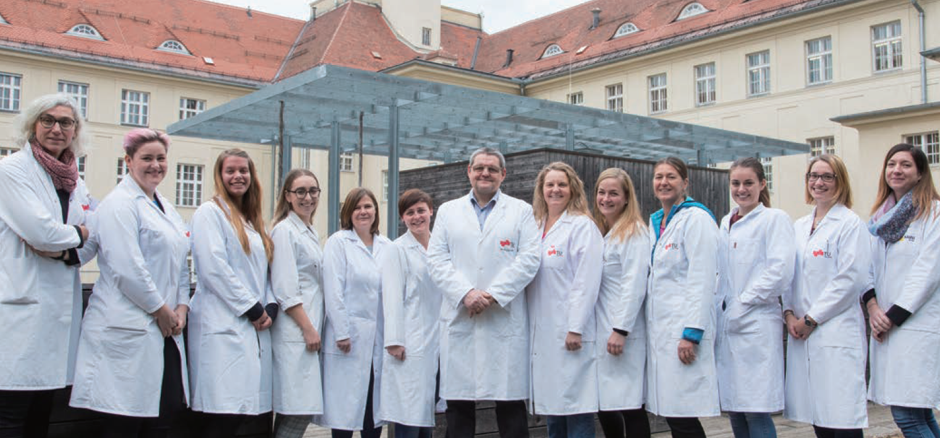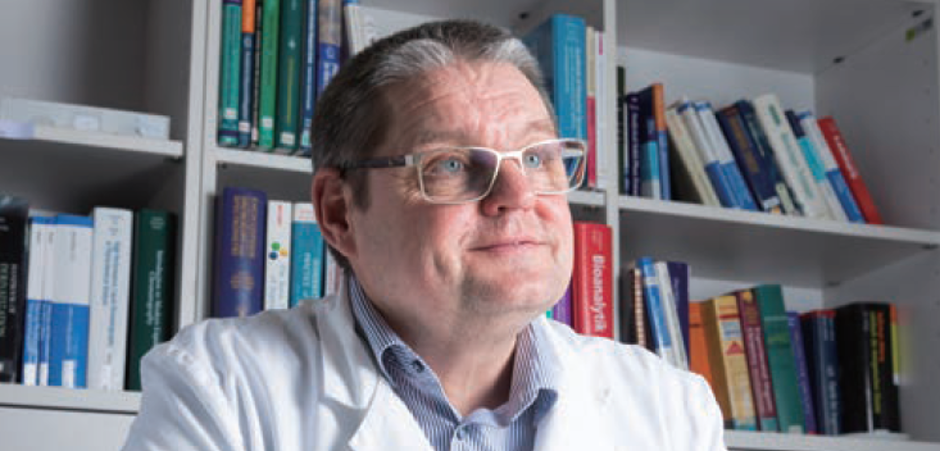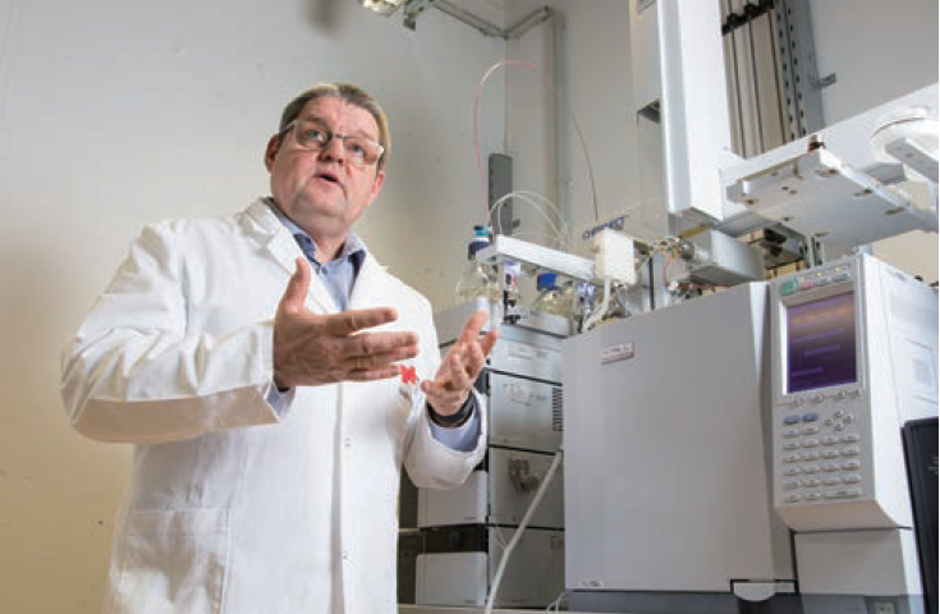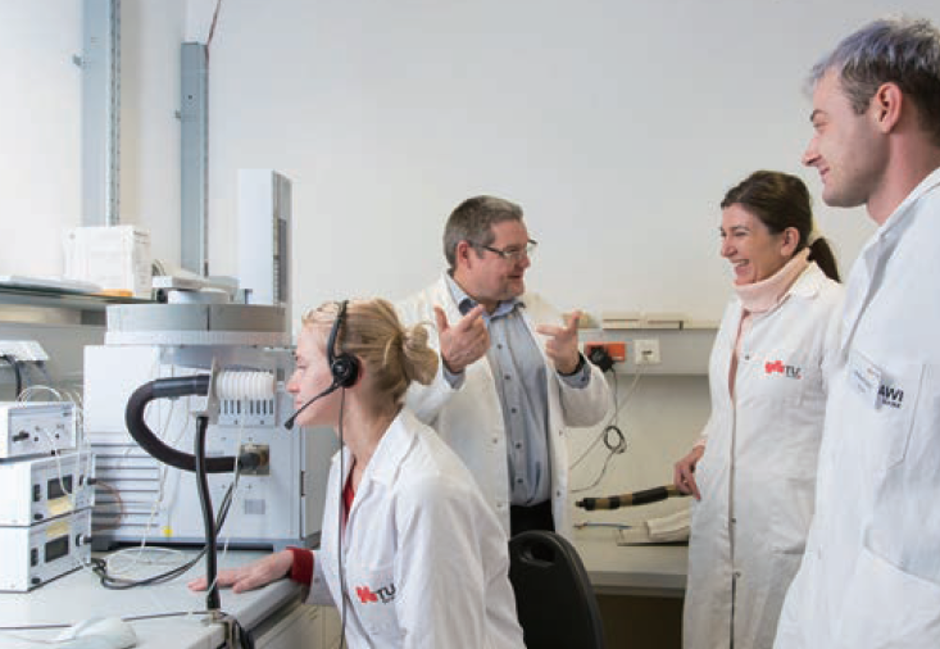Professor Erich Leitner from Graz University of Technology in Austria is a leading expert on food quality and was recently interviewed about his current research. He is a major figure in the local food network, having strong relations with local food producers and farmers in the region. Leitner has been using Shimadzu and mass spectrometers for over a decade to study food.

Professor Leitner, thank you very much for spending some time for this interview. At first, could you outline the research and let us know what discovery and achievement have been made so far?
The largest part of my work deals with the quality of food and food contact materials. This complex topic can be looked at from different points of view. On one hand, we have the positive aspects such as the nice smell of a good meal or a fine glass of wine. On the other hand, we have the things neither consumer nor producers want to see in their products. These are off flavours or even things that might have a negative impact on human health such as undesired residues from various sources (e.g., mineral oil contamination).
Therefore, we try to measure by analytical methods what humans perceive during consumption of food. This task sounds quite simple, but there are molecules, which are perceived by humans at incredibly low concentrations. In addition, the matrices are quite complex, so we are facing analytical challenges in terms of sensitivity and selectivity as well.

Why are you interested in this research? What is the goal?
I think I am one of the blessed persons who have the luck to combine job and hobby. I am obsessed about the quality of food (however you may define it) and I definitely want to understand why a product is good or not. Finally, you are ending up in analytical chemistry trying to define the quality parameters. Therefore, the final goal for me should be to predict the quality of a product by analytical techniques. Nevertheless, it is very important for me to stress out that we still need humans for the final judgment, but analytical methods can greatly support this goal.
Could you tell us why you chose Shimadzu as your partner when you established this new lab?
I am in the business for over thirty years and I was looking for a cooperation partner ensuring a long-term relation. It is very important to me to have a good mutual trust, so the decision was for Shimadzu fulfilling these requirements for me.
How are Shimadzu's instruments helping you?
Shimadzu offers a wider range of instruments relevant for my work. After all the years I realized, that there is no machine existing that can handle all the different questions we have to answer. However, all the different Shimadzu instruments I am using show an incredible reliability and stability over years, handling hundreds or even thousands of measurements every month.

What are Shimadzu’s strengths compared to other vendors (not limited to the instruments)?
I really like the fast response time to a request and the flexibility for single tailor made solutions. Some of my instruments have a unique configuration, which you cannot find anywhere else. In addition, Shimadzu helps me to realize my visions of instrumental set-ups, which are not from the normal assembly line and they are open for sometimes “crazy” discussions.
Finally, could you share any requests that you have with respect to analytical and measuring instrument vendors?
My advice to any instrument manufacturer is to listen to their customers. Every single costumer is important!

Thank you for sharing your experience and discussing your collaboration with Shimadzu.
Read more about food development solutions in Shimadzu Journal Volume 7.




